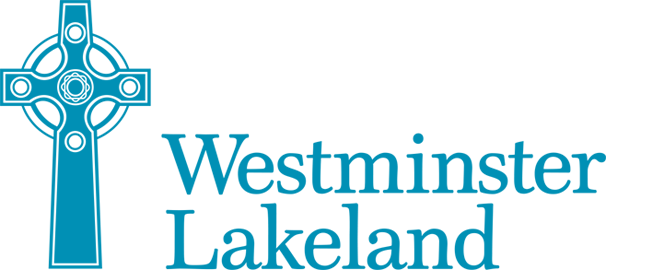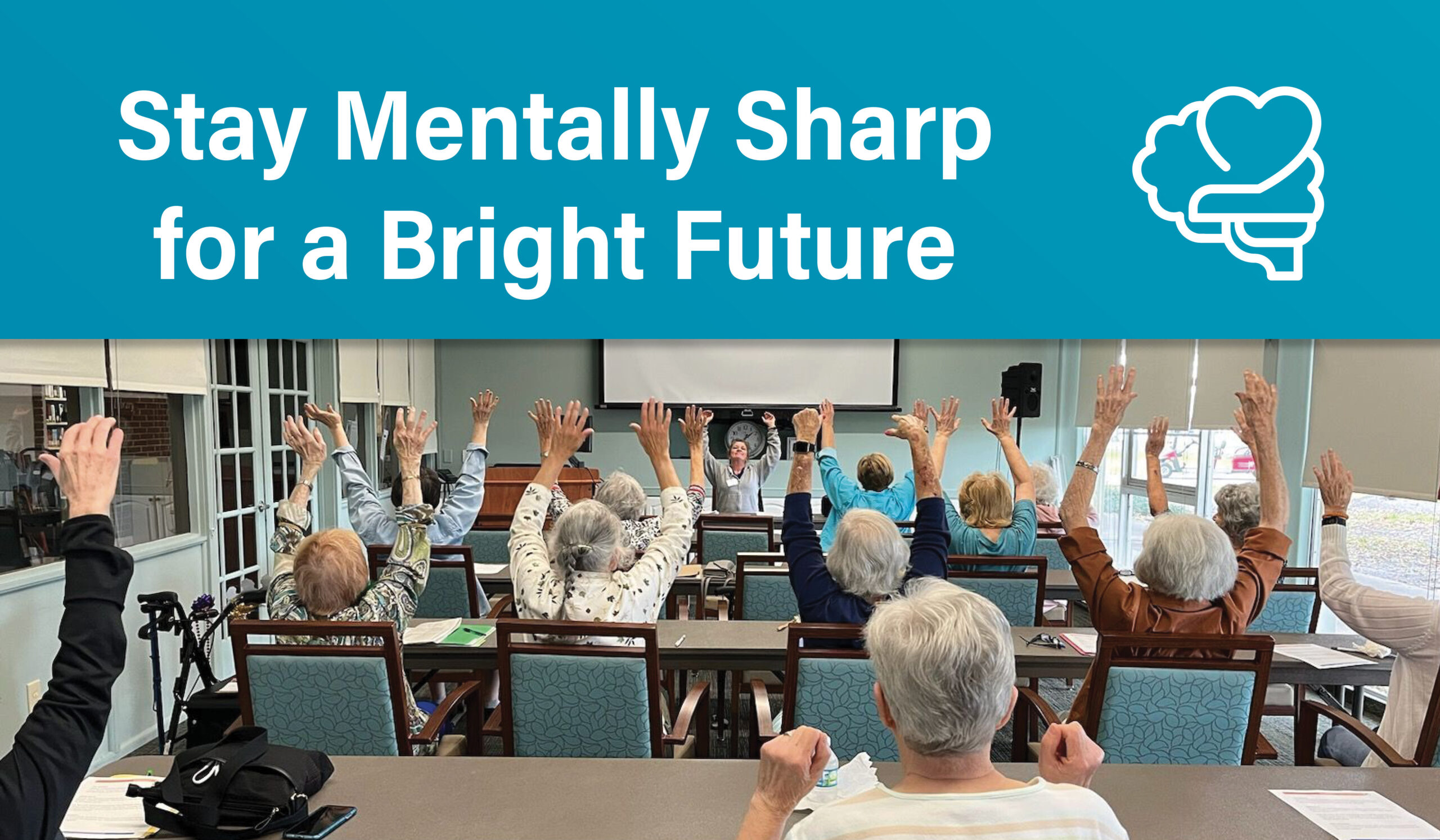Each week, anywhere from 12-20 residents at Westminster Woods on Julington Creek, our Life Plan Community in Jacksonville, meet to exercise their minds as well as their bodies. Fitness Coordinator Jeri Jo Fox leads residents in stimulating exercises aiming to maintain their mental agility. Staying mentally sharp is a key component of leading a healthy life, and it’s never too late to start.
“Just because I’m the fitness coordinator, it’s not all about me teaching physical fitness,” Jeri Jo said. “Brain fitness is just as important.”
Westminster Woods on Julington Creek isn’t the only Westminster community mixing brain health exercises into their daily activities. Brain health programming can be found at each of our Life Plan Communities throughout the state emphasizing the need to exert different areas of the brain and maximize its potential as we age.
For years, Jeri Jo has been incorporating brain fitness exercises into her physical fitness classes. She completed hours of research, connected with experts, and created her own curriculum full of exercises involving finger manipulation, coordination and a combination of physical exercise and brain stimulation. Today she leads residents through a 12-week program called Total Brain Health. Through puzzles, games, creative endeavors, and even physical activities, residents are challenged both mentally and physically in order to stay sharp. The science-based, expert-designed curriculum offers simple exercises for cognitive wellness and details why these exercises are beneficial for brain health.
“There are so many things that are related to brain health for a successful quality of life,” Jeri Jo said. “I’ve seen after COVID the people who did not socialize or exercise, part of them just shut down. There’s so much that you can control, so why not incorporate it?”
During class residents are given worksheets and handouts to coincide with the brain games and workouts to highlight which area of the brain they’re working and to further develop social skills, but the lessons are varied.
“Every week is a different lesson so residents aren’t going to fall behind if they miss one or two or three,” Jeri Jo said. “You start off with a physical warmup with your hands and your feet, and everything you do you’re counting backwards or forwards or saying the alphabet, so you’re warming up your brain.”
Jeri Jo noted that she has some very healthy and very independent residents attending the Total Brain Health class, but that the program extends beyond just independent living residents.
“This is the one class some of my more physically challenged independent residents can attend. They might not come to balance class, but they really look forward to this,” Jeri Jo said. “I took that same exercise to the health center because they can do it! Even if they are sitting in a wheelchair, they can still participate in a brain game.”
Residents tell Jeri Jo they notice the effects and feel better. “They look forward to this and they like the challenge,” she said noting she’s seeing benefits herself leading the class through these exercises. “I feel like my mind is clearer and sharper because I do this stuff.”
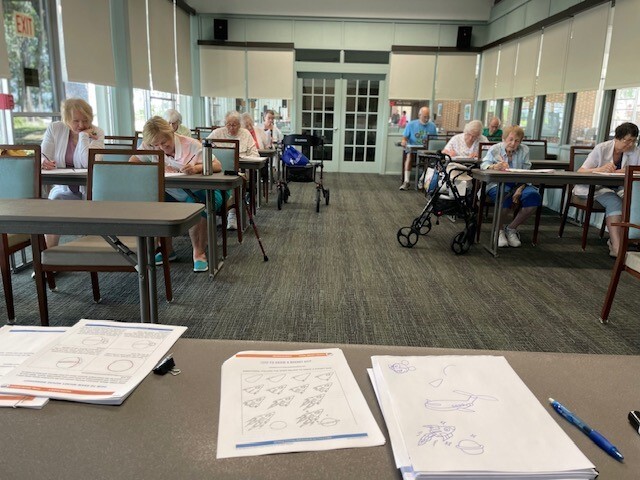
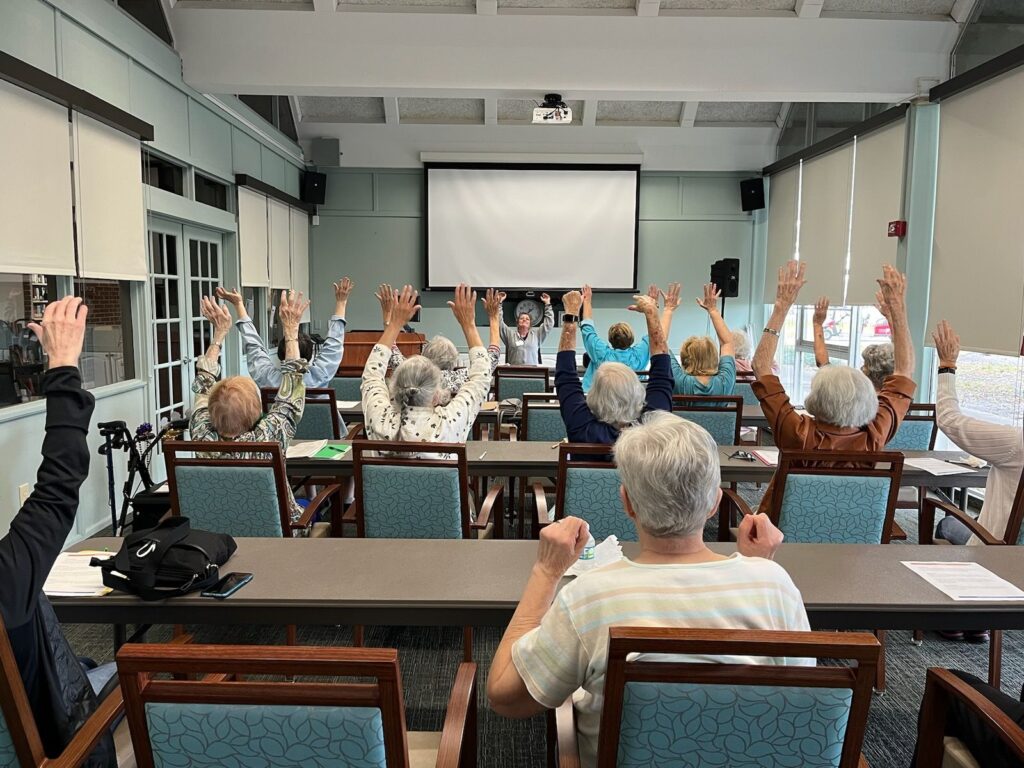

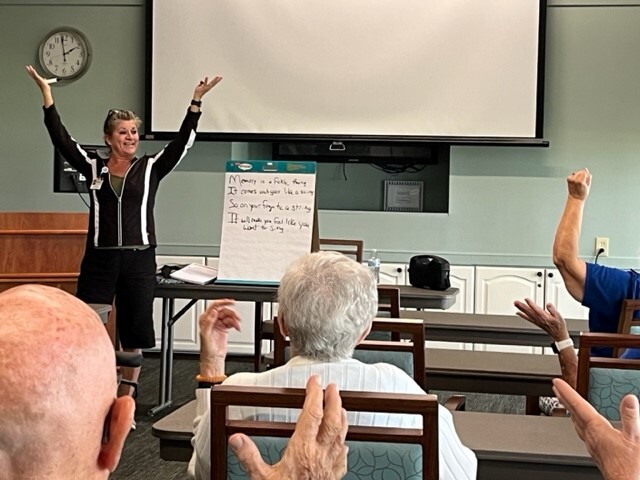

IMPROVING BRAIN HEALTH AT HOME
By exercising your brain either at home or at a Westminster community, you strengthen the neural pathways in your brain, which can help to improve your memory, attention, and problem-solving skills. November is Alzheimer’s Disease Awareness Month and if you can’t be there to participate in Jeri Jo’s Total Brain Health class in person, she offered some ways you can get a brain workout at home to improve your brain health and reduce your risk of Alzheimer’s disease and other cognitive disorders.
- 1. Read out loud for 15 minutes each day.
- 2. Write. If your hands don’t work well use your computer and type or write for 15 minutes each day. Write a letter, or write a story, write a summary of your day, write what you’re grateful for – just write!
- 3. Socialize. Connect with others. In order to have a conversation with somebody, you have to remember what they said, you have to pull from your memory and find the vocabulary.
- 4. Challenge your brain through a mentally stimulating exercise or by doing a game against the clock. Something that is new and novel is desirable to your brain.
- 5. Eat well, stay hydrated, sleep and exercise.
When you choose to live at a Westminster community, you’ll have access to a plethora of well-being opportunities to exercise your mind and body. Learn more about the lifestyle you can enjoy and find the community near you today!
